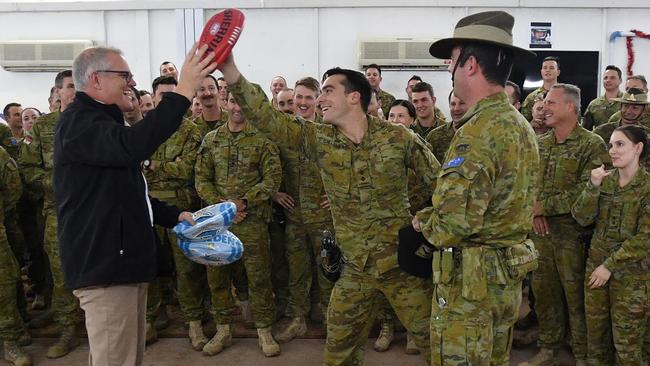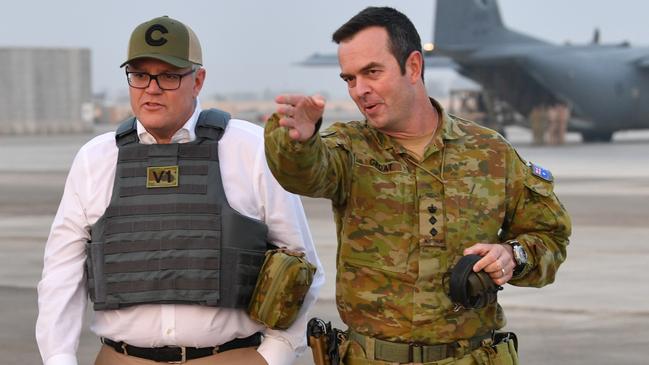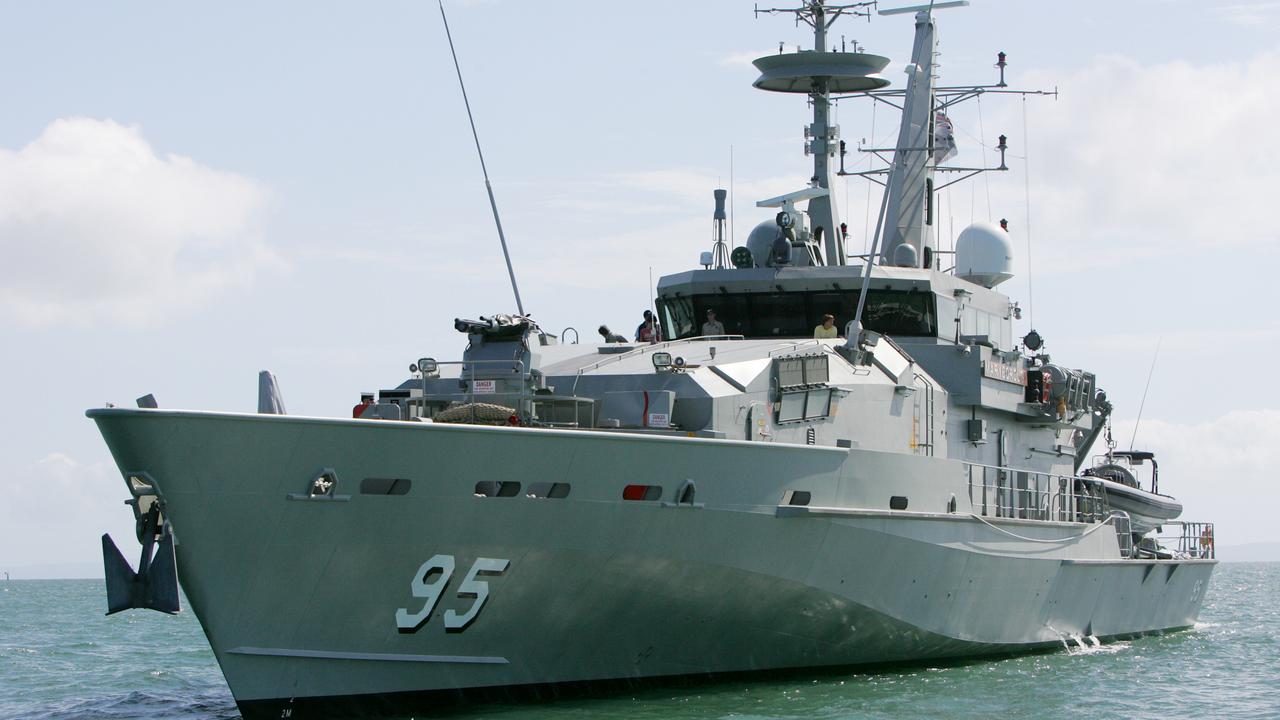ISIS threat alive, allies warn as Trump pulls troops out of Syria
Donald Trump’s shock decision to withdraw all US troops from Syria has sparked fears of a renewed threat from Islamic State.

Australia was one of the few allies to get advance warning of Donald Trump’s shock decision to withdraw all US troops from Syria, a move that has recast America’s military involvement in the Middle East and sparked fears of a renewed threat from Islamic State.
The decision was condemned by America’s closest allies including Britain, and stunned US Defence Secretary Jim Mattis as well as America’s national security team.
The move was described by Liberal senator Jim Molan, a former deputy chief of operations for Coalition troops in Iraq, as a serious mistake.
Former chief of army Peter Leahy also disputed the US President’s claim that Islamic State had been defeated.
Mr Trump’s announcement came as Scott Morrison made a surprise trip to Iraq, visiting Australian troops near Baghdad and promising to stay the course with the troubled nation.
“Australia is a friend of a free, independent and sovereign Iraq and that has always been our goal and our motive in seeking to support Iraq in these difficult years and over a sustained period of time,’’ the Prime Minister said.
His office declined last night to say whether Mr Morrison knew of Mr Trump’s decision on Syria when he made his remarks in Iraq.
While most of the world learned of Mr Trump’s decision via Twitter, The Australian can reveal that Australia was one of the few countries, and possibly the only one, to get advance notice.

The White House quietly tipped Australia off shortly before the announcement.
Senator Molan described Mr Trump’s move as “an error in the magnitude of (former) president (Barack) Obama’s policies”.
“What passes for strategy nowadays is to commit insufficient troops to begin with, start losing the war then surge to the right number of troops and either announce their withdrawal at the time or precipitately withdraw them later on,’’ Senator Molan said.
With Islamic State reduced to a few thousand fighters in Syria, there was dismay among some of Washington’s allies at the abruptness of the President’s move and scepticism about his declaration that the war against the terrorist group had been won.
Mr Trump’s decision surprised Mr Mattis as well as his national security team, which had warned against the move, saying it could help Islamic State to survive and would allow Russia and Iran to dominate the war-torn nation.
More than 2000 US troops will depart Syria within 30 days, leaving a power vacuum.
Tobias Ellwood, the Defence Minister in Britain, one of the few coalition nations that has troops on the ground in Syria, said he strongly disagreed with the decision.
“(Islamic State) has morphed into other forms of extremism and the threat is very much alive,” Mr Ellwood said.
Mr Morrison visited the 800 Australian troops in Iraq to thank them for their service in training Iraqi troops to fight Islamic State.
“We acknowledge the great suffering that the Iraqi people have experienced over this time of their brave fight,’’ he said in a joint press conference with Iraq Prime Minister Adil Abdul-Mahdi.
Mr Trump, who has wanted to withdraw US troops from Syria for months and who had campaigned on the issue in 2016, said the fight against Islamic State had been won and there was no longer any need for US forces to remain.
“We have defeated ISIS in Syria, my only reason for being there during the Trump presidency,” he tweeted.
The claim has been compared with the premature “mission accomplished” statement by then president George W. Bush in 2003 after US forces toppled Saddam Hussein in Iraq, only to become bogged down for years by militant uprisings.
The withdrawal of US troops from Iraq in 2011 by Mr Obama created a vacuum that allowed Islamic State to sweep into the country in 2014.
Mr Leahy said although the presence of 2000 US troops was not “a game-changer’’, Islamic State was hardly defeated.
“They’re still active in Iraq and other parts of Syria,’’ he told The Australian.
“There is an alternate force in the region so there are reasons why the US can withdraw, although I suspect they’re political reasons.’’
Senator Molan said the move undermined America’s steadfastness as an ally in the region.
“What commitment can we ever expect from a depleted American military and an unpredictable president?’’ he said.
The Morrison government was more muted.
Defence Minister Christopher Pyne said the coalition’s military involvement in Syria had reduced “in line with progress on the ground’’.
“Australia will continue to work with coalition partners and the wider international community to counter Daesh,’’ Mr Pyne said.
Until January, Australian F-18 Super Hornets had been flying combat missions over Syria as part of a US-led effort to beat back Islamic State, which had established a so-called caliphate across northern Iraq and large parts of Syria.
Since it lost most of its territory a year ago, ISIS has regrouped as an Iraqi-based insurgency.
Lowy Institute Middle East expert Rodger Shanahan said the bulk of Islamic State’s fighting force was in Iraq where it was being protected by sympathetic Sunni tribesman. A smaller fighting force, thought to number a few thousand, remained in Syria.
Dr Shanahan said a 2000-strong contingent of troops was not going to change the course of the war and the main effect of their departure would be to make the Kurdish forces operating with the Americans a less-effective fighting unit as they would lose the benefit of American intelligence, air support and political leverage.



